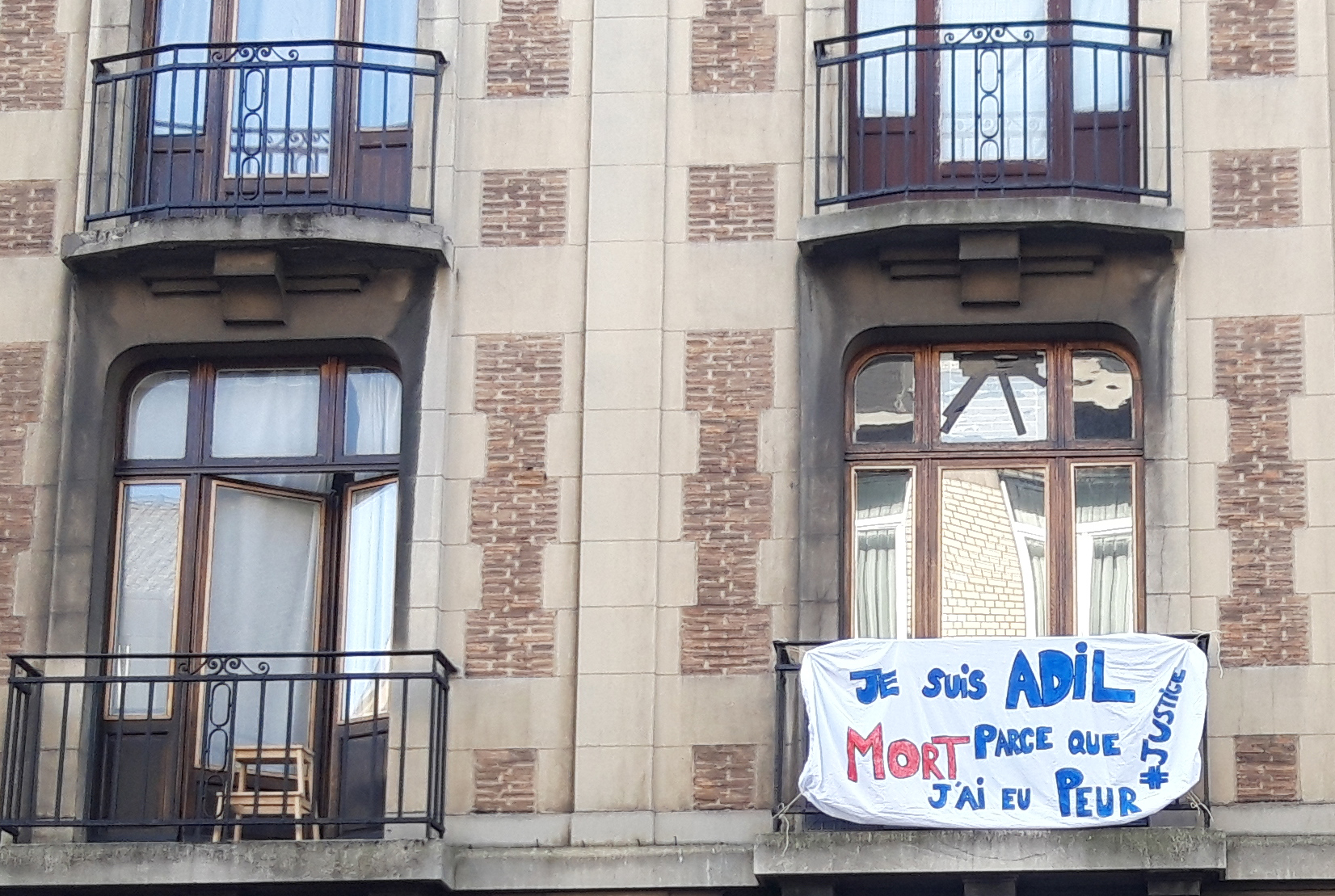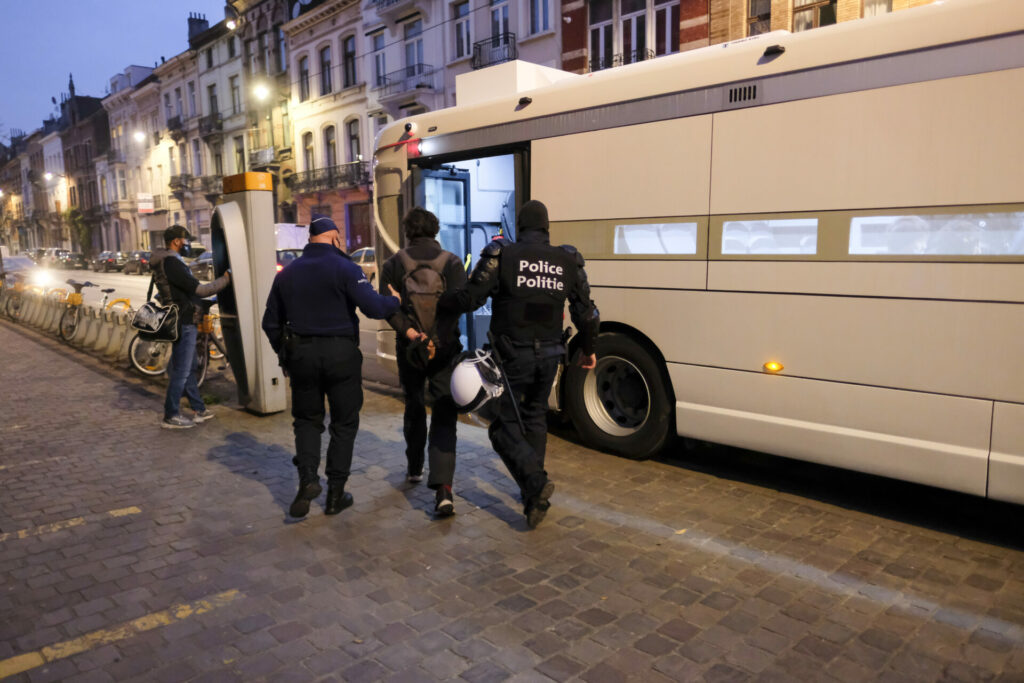The Brussels Criminal Court has handed out sentences to 17 individuals, ranging from community service of up to 150 hours and 37 months in prison for their roles in the Anderlecht riots. The verdict for verdict for the three involved police officers will be on 20 February.
At the age of 19, Adil Charrot was killed on 10 April 2020 after being rammed by a police car head-on while on his scooter on Quai de l'Industrie and succumbed to his injuries. He had not stopped for a Covid-related police check during the first lockdown.
After the news of Adil's death broke, clashes occurred between protestors and the police across several Anderlecht streets. Police vehicles were vandalised and officers injured. Many of the protestors felt the incident had a racial angle to it.
Out of 19 defendants, two were acquitted and 17 convicted — acts ranged from theft from police vans, attacks on officers, and vandalising police vehicles. Fourteen incidents across seven locations were identified, including street of the Rue Clinic and Jorez near Clémenceau Metro station, and others.
Each defendant was individually identified through surveillance footage and their evidence evaluated separately, leading to varied convictions. Six received severe penalties, ranging from 24 to 37 months in prison, while the rest were given suspended sentences and community service.
D.N., who received the heaviest conviction of 37 months in prison, was found guilty of multiple charges, including attacking police officers, injuring a policewoman and vandalising three police vehicles.
In the court’s view, the severity of the acts demonstrated a total lack of respect for police officers whose job is to serve and protect the population.
Justice for Adil?
The inquiry into Adil's killing during a police chase in Brussels, also heard all of the parties' final arguments on Tuesday. The Council Chamber will deliver its verdict relating to the indictment of the three involved officers on 20 February.
Brussels' Public Prosecutor had called for the officers' acquittal on 26 November 2020, based on the first expertise report.

Credit: Belga / Jens Theys
Yet on 9 April 2021, Alexis Deswaef, the victim's family lawyer, requested additional investigatory actions, eager to shed light on the accident's circumstances. The Council Chamber granted the extra tasks with the case rescheduled for 16 May 2023.
By that date, new information emerged. A colleague of one of the accused officers claimed the officer had expressed racially biased remarks towards Charrot following his death. Consequently, the victim's family requested further investigation, approved by the council chamber. The case was postponed until 5 September to receive the results.
Final arguments followed on 9 January. By mid-December, media reported on a new vehicle-expertise report ordered and paid for by the victim's family, resulting in differing conclusions. Notably, the report suggested Charrot's scooter was illuminated – contrary to the officers' statements – and there was no evidence of excessive speed when the first patrol began pursuit.
The newer report also underlined that the police vehicle which collided with Charrot's scooter had an expanded field of vision.
Yet, the officer had declared he could not see the scooter crossing in front of him. Critically, the report indicated that, based on its analysis, the police vehicle was angled on the road, suggesting it had intentionally blocked Charrot's path.

